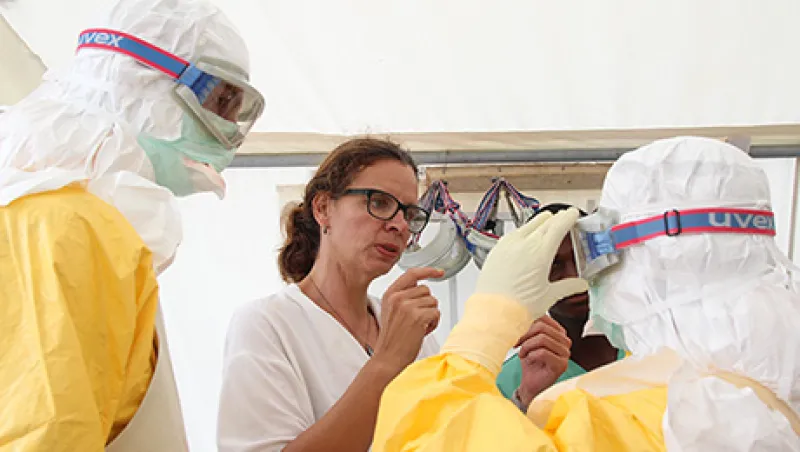
Anja Wolz, emergency co-ordinator at the Doctors Without Borders (Medecins Sans Frontieres) clinic at Kailahun, helps Joanne Liu, president of medical charity Doctors Without Borders, right, as she puts on goggles and protective clothing at the charity's ebola treatment center at Kailahun, Sierra Leone, in this handout photo taken on Aug. 27, 2014, and released to the media on Wednesday, Oct. 8, 2014. The Doctors Without Borders clinic sits in Kailahun, Sierra Leone, a city of roughly 30,000 inhabitants about 25 miles from the point where the country's border meets those of Liberia and Guinea. Photographer: P.K. Lee/MSF via Bloomberg EDITOR'S NOTE: NO SALES. EDITORIAL USE ONLY
P.K. Lee/via Bloomberg

